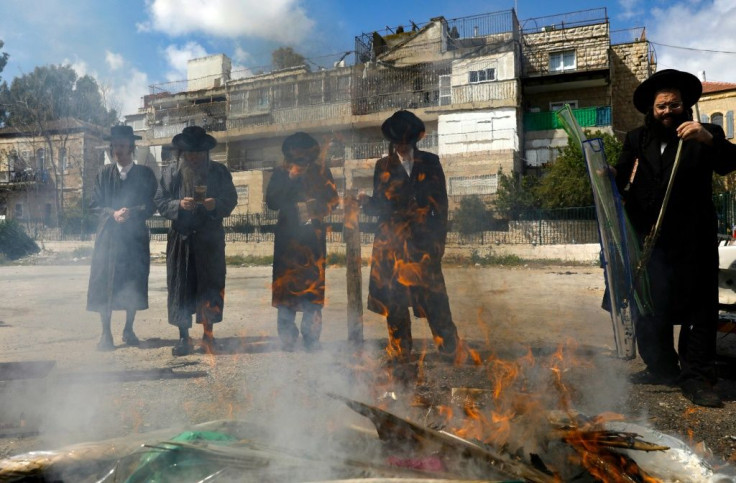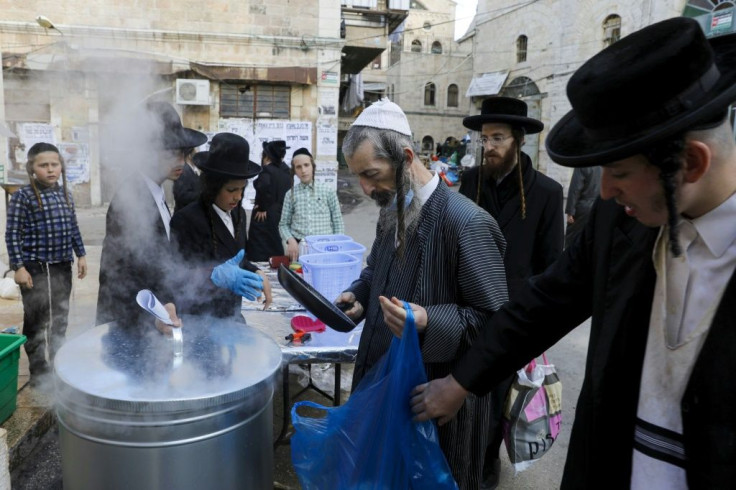Jewish World Marks Start Of 'Strange' Passover

Jews marked the start of a "strange" Passover holiday on Wednesday as the coronavirus pandemic prevented the large family gatherings usually organised for the traditional Seder meal.
In Israel, which has more than 9,000 confirmed cases of the deadly virus, a nationwide curfew was in effect, with security forces deployed on the streets to prevent anyone seeking to visit relatives in violation of social-distancing measures.
In an English language message to Jews across the world, Israeli Prime Minister Benjamin Netanyahu acknowledged that this year's Passover was "strange" and "different from all other Passovers."
The pandemic "requires us to change our way of celebrating," Netanyahu said.

The run up to the holiday, which marks the Jewish people's biblical exodus from slavery in Egypt, saw a heated rabbinical debate over whether it was permissible to host Seders over Zoom or other videoconferencing platforms.
One group of prominent rabbis approved the measure as a justifiable way to alleviate the loneliness that some Jews -- especially the elderly and sick -- may be experiencing in coronavirus isolation.
But Israel's chief rabbinate rejected that ruling.
"Loneliness is painful and we must respond to it, perhaps by having a video conference on the eve before the holiday begins, but not by desecrating the holiday itself," Israel's chief rabbis David Lau and Yitzhak Yosef said in a statement.
© Copyright AFP 2024. All rights reserved.





















